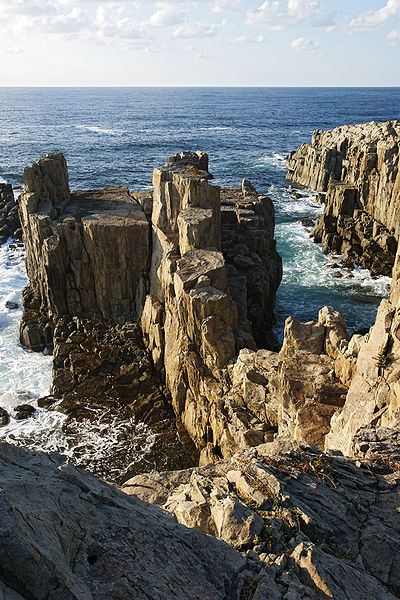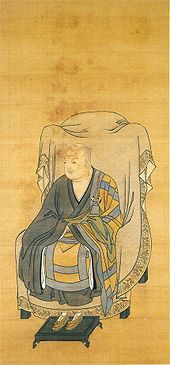When a poem was requested by lord Hojo (Tokiyori) at
Saimyoji while (Dogen) was in kamakura in Kangen 1
(1243 C.E.), he made a poem on transmission outside
(scriptural) teaching:
If only the Dharma could be
Written like abiding oysters
On the high rocks unreached
Even by violent waves!
Hōji gan (hinoto-hitsuji) nen Kamakura-ni arite Saimōji-
dono Kita-no-onkata-yori dōka-wo goshomō-no toki
kyōge-betsuden-wo eiji-tamau
Araiso-no
Nami-mo e yosenu
Taka-iwa-ni
Kaki-mo tsuku-beki
Nori-naraba koso
宝治元丁未年、在鎌倉最明寺殿自北御方道歌をご所望の時
詠経外別伝給ふ
荒磯の
浪もえよせぬ
高岩に
かきもつくべき
法ならばこそ
Note: “Kaki” has the double meanings of “oyster” and “write” and also “tsuku”
has the double meanings of “stick” and “exhaust,” thus meaning:
If the Dharma could be written, I could have done so (for you) like the oysters
sticking to the high rocks where even violent waves can not reach. Even oysters
might be found sticking to high rocks (apparently) unreached by waves (unbelievable
phenomena by unusual ways of rocks’ rising or sea’s sinking), the true Dharma could
not be written (expressed verbally, but only witnessed by your cultivation and
verification, far more unbelievable matter through the unusual, uncommon way).

Tojinbo (東尋坊, some thirty miles from Eiheiji, where
Dogen lived his later years practicing with his disciples.

Hōjō Tokiyori (北条時頼, 1227-1263 C.E., reigning 1246-
1256 C.E.), invited Dōgen to Kamakura, the then capital,
in Hōji (宝治) 2-3 (1248-1249 C.E.), later resigned from
the power and renounced as Kakuryō Dōsū (覚了道崇)
staying at Saimyoji (so, called Saimyōji Dōsū, 最明寺道崇).
